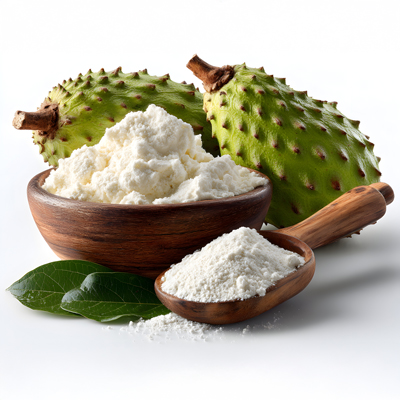Metabolism
All information about "Metabolism" and the related magazine articles can be found here.
Our articles are written clearly and link to scientific studies where relevant. This is how we meet our own standards: we regularly deliver new, high-quality content for you—free of charge, no sign-up required, with the highest possible benefit to you.

Beta-glucan & liposomal vitamin C
A strong foundation for your immune system
Discover how beta-glucans and liposomal vitamin C work hand in hand to support your immune system and create a solid foundation for your daily well-being.

Bitter drops: Your ritual for September
Rediscover the forgotten power of bitter substances
Read how bitter drops and foods containing bitter substances can aid digestion and increase your well-being. A little ritual that fits perfectly into your September cooking.

Magnesium Complex + Vitamin B6 in the evening
Your invitation to rest
Treat your body to the rest it needs after a long day. A magnesium complex with vitamin B6 can help relax your muscles and nerves and gently prepare you for a restful night's sleep.

Small strength for big changes
Vitamin C ascorbyl palmitate: your silent companion in sensitive times
When your body and everyday life are changing, even familiar things take on a new light. Vitamin C appears in a special form with ascorbyl palmitate, offering a fresh perspective on this well-known nutrient.

Zinc & Selenium: Your support for men's health
The silent helpers for vitality and a strong immune system
Discover how zinc and selenium strengthen your health from within as essential building blocks. This guide shows you how to sustainably support your performance and resilience.

In harmony through September
Omega-3 from algae DHA – for your heart, joints, and nerves
Between emails, appointments, and routines, September can quickly feel like a double espresso. Omega-3 from algae DHA can gently balance the body and support your heart, joints, and nerves. A quiet background noise that can provide stability.

Children strong throughout the day
Immune system, energy, and everyday eating made easy
How to gently strengthen your child's immune system with colorful plates, bedtime rituals, and fresh air. Plus: When child-friendly multivitamins make sense and how to relax and fit them into your everyday routine.

Strong joints in everyday life
Collagen, MSM & glucosamine under the microscope
Knee twinges, shoulder aches? Collagen, MSM, and glucosamine can help support joint comfort and mobility—making it easier to climb stairs, play, and tackle tasks.

A touch of sunshine for gray days
Get through fall with vitamins D3 and K2
When the light fades, your energy can stay strong. D3 and K2 help you relax and get through the cooler months, like a little supply of sunshine for every day. Find out more here!

Your silent DJ for everyday life
Coenzyme Q10 – energy in the background, balance in the foreground
Sometimes you don't need a loud drive, but a reliable foundation. Q10 acts like a quiet pacemaker that harmoniously organizes your inner energy. This creates a flow that carries you relaxed through everyday life.

Time for a cell reset?
Cell care with a conscious mind: A clear autumn with spermidine
Between sunscreen residue and the hustle and bustle of everyday life, the need for order is quietly making itself known. This is exactly where Spermidin comes in - for all those who want to reorganize their inner life and get started with fresh energy.

Between resting mode and new beginnings: L-threonine in focus
When your head is still barefoot but your calendar is already wearing sneakers
L-threonine suits this in-between time like iced coffee suits late summer: subtle, but just right. Discover how the silent amino acid can give your system gentle structure - in the middle of the transition.

Goodbye, summer chaos - hello, hormone balance!
Find your way back from vacation mode to everyday life with Inositol.
The summer was wonderfully carefree, but now hormones, skin and mood are dancing out of line? Inositol is the secret director that gently directs your body back into rhythm. Discover how this nutrient can help you get going again full of energy and balance!

Clarity of thought meets plant power
With ginkgo, ginseng & bacopa naturally through everyday life
When thoughts are still in the hammock but the calendar is already drumming away, gentle structure is required. Get to know three herbal classics that balance concentration and calm - without any caffeine.

From heat to strength: more balance and energy with Tribulus terrestris
Herbal impulses for your body - when summer, everyday life and hormones collide
Your head is full, your circulation tired and summer means a little too well? Tribulus terrestris can help exactly where energy and inner stability start to falter. Find out here how this resilient plant can become your natural drive through the warm days.

Harvest time for your immune system
Zinc & beta-glucan - for gentle strength when summer becomes quieter
When the sun gets lower and the air smells of change, a quiet transition also begins in the body. Zinc and beta-glucan can provide beneficial stimuli right now - for an immune system that experiences the transition consciously and in balance.

Berry power through the summer - with antioxidants & vitamin C
Local berries provide flavonoids, vitamin C and antioxidants - good for the heart, immune system and freshness.
Summertime is berry season - perfect for an active, healthy lifestyle. Local berries such as blackcurrants and blueberries are not only delicious, but also rich in vitamin C and flavonoids. They support cell protection, strengthen the blood vessels and boost your vitality.

Yam root & vitamin C
Natural nutrients for energy, skin glow & hormonal balance
Do you often feel tired or does your skin long for freshness? Learn how yam stabilizes your mood and vitamin C (ascorbic acid) provides your collagen boost - easy to integrate into your daily routine!

Blood sugar under control: How chromium stabilizes naturally
Chromium helps to regulate blood sugar fluctuations. For more energy and balance.
Chromium protects cells from sugar damage, has an antioxidant effect and stabilizes blood sugar - without any artificial additives. Ideal for greater well-being and fewer cravings, especially in the sugar-rich summer.

Stay mineralized when it gets hot
Stay fit through the summer with calcium and magnesium from sango coral
If heat, sweating and circulatory problems are getting to you, a good supply of minerals is crucial. Find out here how calcium and magnesium from sango coral can support you naturally.

Hormones in sync: For a vacation full of well-being
Beta-sitosterol & zinc: companions for hormonal balance on vacation
The suitcase is packed, the anticipation is huge - but what if the hormones find their own rhythm on vacation? New surroundings can keep the body on its toes. Fortunately, there is a natural dream team: beta-sitosterol and zinc. Find out here how this duo keeps the balance and gives you carefree vacation days!

Plant-based protective shield for your summer
Graviola - For support with inflammation and sensory overload
Are you dreaming of a warm season full of serenity in which your body vibrates in harmony? Graviola can help you maintain inner balance and gently support you through the challenges of inflammatory reactions or sensory overload. Discover how this exotic plant can contribute to your summer well-being.

Your Circulation Compass: Naturally in balance with nattokinase & OPC
Gentle support from nature for your well-being and vital blood vessels
Does your inner rhythm sometimes falter and your sense of well-being diminish? With nattokinase and OPC, nature offers a gentle way to harmonize your circulation and care for your blood vessels. Discover here how this duo can lead you back to new balance and vitality!

Awake in the moment, focused through long summer days with caffeine
Your kick for concentration and joie de vivre
Do you dream of experiencing the endless summer days with full presence and a clear head instead of fighting fatigue? Caffeine can be your natural ally to sharpen your focus and enjoy every ray of sunshine, every adventure with awareness and energy. Discover here how to make your summer moments more alert!
Understanding your metabolism: What you need to know to optimize it
Have you ever wondered why some people seem to stay slim effortlessly, while others constantly struggle with their weight? Or why you feel energized after certain meals and just tired after others? The key to these mysteries may lie in your metabolism!
How does the metabolism in our body work?
Metabolism, also known as metabolism, comprises all the biochemical processes in our body that are necessary to generate, store and use energy [1]. It is important because it supports vital functions such as respiration, digestion, cell repair and growth.
It consists of two main processes: anabolic (building up) and catabolic (breaking down) energy metabolism. In anabolic metabolism, molecules are built up and energy is stored, while catabolic metabolism breaks down larger molecules into smaller ones to release energy [3,4]. These processes take place continuously, even when we sleep.
What factors influence the metabolism?
Energy metabolism is influenced by various factors, including age, gender, genetics, muscle mass, hormonal balance and lifestyle factors such as diet and physical activity. With increasing age, energy metabolism tends to decrease, while muscle mass and physical activity can have a reverse effect [2].
Can you really speed up your metabolism?
Yes, the biochemical processes can be accelerated by various measures. Regular physical activity, especially strength training, can promote muscle building, stimulate fat burning and effectively increase the basal metabolic rate. Certain foods and spices such as green tea, hot peppers and protein-rich foods can also cause a small increase in fat metabolism by activating enzymes that support the breakdown of carbohydrates [2]. L-carnitine, for example, can support fat burning.
Which foods promote a healthy metabolism?
Foods that are rich in protein, fiber and healthy fats promote a healthy metabolism. These include [2]:
- Lean meat such as chicken and turkey
- Fish such as salmon and mackerel, eggs
- Nuts such as almonds and walnuts
- Seeds such as chia seeds and linseed
- Whole grain products
- A variety of fruit and vegetables
How does exercise affect the metabolism?
Exercise, especially intensive training and strength training, increases energy expenditure both during exercise and during rest periods afterwards. Regular physical activity helps to build muscle mass, which increases basal metabolic rate and boosts energy metabolism in the long term [2]. Aerobic exercises such as running, swimming or cycling are also effective in improving energy metabolism [2].
What are the most common metabolic disorders and their symptoms?
Zu den häufigsten Stoffwechselstörungen gehören [5,6,7]:
- Hypothyroidism (underactive thyroid gland): Symptoms may include fatigue, weight gain, sensitivity to cold and depression.
- Hyperthyroidism (overactive thyroid): Symptoms include weight loss, nervousness, excessive sweating and palpitations.
- Diabetes mellitus: symptoms include increased thirst, frequent urination, tiredness and blurred vision. Here you can find out what diabetics should not eat.
- Metabolic syndrome: symptoms include obesity, high blood pressure, high blood sugar levels and high cholesterol levels.
If a metabolic disorder leads to obesity, this can cause a number of secondary diseases, including osteoarthritis. Osteoarthritis is a joint disease caused by the breakdown of cartilage.
Did you know that the trace element selenium can regulate thyroid hormones as an important antioxidant? Find out more about it here,
How do hormones influence the metabolism?
Hormones such as insulin, thyroxine, cortisol and adrenaline play a central role in the regulation of metabolism [8]. Insulin regulates blood sugar levels and promotes the uptake of glucose into the cells. Thyroxine influences energy consumption and the body's basal metabolic rate. Cortisol, also known as the stress hormone, regulates sugar and fat metabolism and can slow down energy metabolism if it is chronically elevated. Adrenaline, also known as the fight or flight hormone, mobilizes energy reserves and temporarily increases energy expenditure [2].
Vitamins can also play a role. You can find out more about vitamin B6 and its influence on processes in the body here.
What role does the metabolism play in weight loss?
Energy metabolism determines how many calories the body burns at rest and during activity. A higher metabolism means that the body uses energy more efficiently and burns more calories, which helps with weight loss. Food intake and exercise are key strategies to optimize biochemical processes and support weight loss. A balanced diet with a moderate calorie deficit and regular exercise is crucial for successful long-term weight loss [2].
Which myths about metabolism are widespread?
A common myth is that people with a slow metabolism cannot lose weight. In fact, food intake and exercise play a greater role than the individual's metabolism.
Another myth is that small, frequent meals can greatly boost a poor metabolism, although the effect on overall metabolism is minimal. Instead, the quality and composition of food, as well as the total amount of calories consumed, is crucial for metabolic health and weight management [2].
While certain foods and activities can slightly increase energy metabolism in the short term, the effect is often minimal and not long-term. The basal metabolic rate is mainly determined by factors such as muscle mass, age and gender.
Which metabolic type am I?
The classification into different metabolic types is an approach that attempts to explain individual differences in energy consumption and energy metabolism. People respond differently to diet and exercise, partly due to genetic factors. Some tend to gain weight easily, while others tend to stay lean, regardless of their diet. Metabolic type can influence how efficiently the body utilizes nutrients and burns energy. Although this typing is not always clear-cut and individual variations are large, it can help to adapt personal diet and fitness strategies to achieve health goals [2].
There are various approaches to classifying metabolic types, but no universally recognized typology exists. The classification into specific metabolic types is scientifically controversial and not clearly proven. Although individual metabolic differences exist, they cannot simply be divided into fixed categories. Here are some frequently discussed metabolic types [9]:
- Ectomorph: People of this type tend to be lean and often have difficulty gaining weight. They usually have an active metabolism and burn calories quickly.
- Mesomorph: Mesomorphs are often athletically built, have good muscle definition and can build muscle relatively easily. They often have a balanced metabolic process.
- Endomorphic: Endomorphic types tend to put on fat easily and often have difficulty losing weight. They usually have a slower metabolism.
- Metabolic types based on food reactions: Some classifications are based on how the body reacts to different foods. For example, people may react differently to high carbohydrate, high protein or high fat diets, which affects their metabolic type.
- Genetic and hormonal differences: Some approaches consider genetic and hormonal factors that may cause impaired metabolism, such as insulin sensitivity, thyroid function and other hormonal regulation [2]. Genetic factors play a role, but lifestyle factors such as diet and exercise often have a greater influence.
It is important to note that metabolic types are often a mixture of different characteristics and are not clearly delineated. Determining an individual's metabolic type can therefore be a complex matter and often requires an individualized approach, taking into account various factors such as genetics, lifestyle, dietary habits and physical activity [2].
Guide to determining your metabolic type and how to use it
Self-observation and analysis
Start by observing your physical reactions to different diets and activity levels. Note how you feel after certain meals - whether you have quick energy or feel tired, how long the feeling of fullness lasts and how your body reacts to different types of physical activity.
Take genetic influences into account
Find out about family predispositions regarding energy metabolism and weight regulation. People in the same family often tend to have similar metabolic patterns, which can give clues to your own metabolic types.
Professional support
Consult a nutritionist or endocrinologist for a personalized metabolic analysis. You can have tests performed that measure metabolic parameters such as resting metabolic rate and responses to specific foods to more accurately determine your individual metabolic type.
Adaptation of diet and lifestyle
Based on your observations and the results of the tests, you adjust your diet and exercise patterns. For example, if you find that you respond well to high-carbohydrate meals and feel energized after protein meals, you can adjust your diet accordingly. Similarly, you can optimize your exercise program by choosing activities that match your metabolic types - be it intense training or gentler forms of exercise [2].
Long-term monitoring and adjustment
Energy metabolism can change over the course of a lifetime, influenced by age, hormone levels, lifestyle and other factors. Stay alert to changes and adjust your strategies accordingly to support your long-term health goals [2].
By having your energy metabolism analyzed and adjusting your diet and lifestyle accordingly, you can make more targeted decisions that promote your health and well-being [2].
At a glance
A well-functioning metabolic process is crucial for health and well-being. You can support and optimize your metabolism through targeted measures:
- regular exercise
- a balanced diet
- Minimization of stress
By consciously addressing the factors that influence metabolism and incorporating healthy habits into your daily life, you can not only better control your weight, but also increase your energy and improve your quality of life [2].
Sources
[1] https://flexikon.doccheck.com/de/Stoffwechsel
[2] https://www.ncbi.nlm.nih.gov/pmc/articles/PMC6019055/
[3] https://studyflix.de/biologie/katabolismus-2621
[4] https://flexikon.doccheck.com/de/Anabolismus
[5] https://www.deutsches-schilddruesenzentrum.de/wissenswertes/schilddruesenerkrankungen/
[6] https://www.bundesgesundheitsministerium.de/themen/praevention/gesundheitsgefahren/diabetes
[7] https://www.internisten-im-netz.de/krankheiten/metabolisches-syndrom/was-ist-ein-metabolisches-syndrom/
[8] https://blog.ksb.ch/wissen/die-wichtigsten-hormone/
[9] https://www.focus.de/gesundheit/ernaehrung/sind-sie-ekto-meso-oder-endomorph-der-stoffwechsel-entscheidet-darum-nehmen-manche-menschen-einfach-nicht-ab_id_125536560.html
